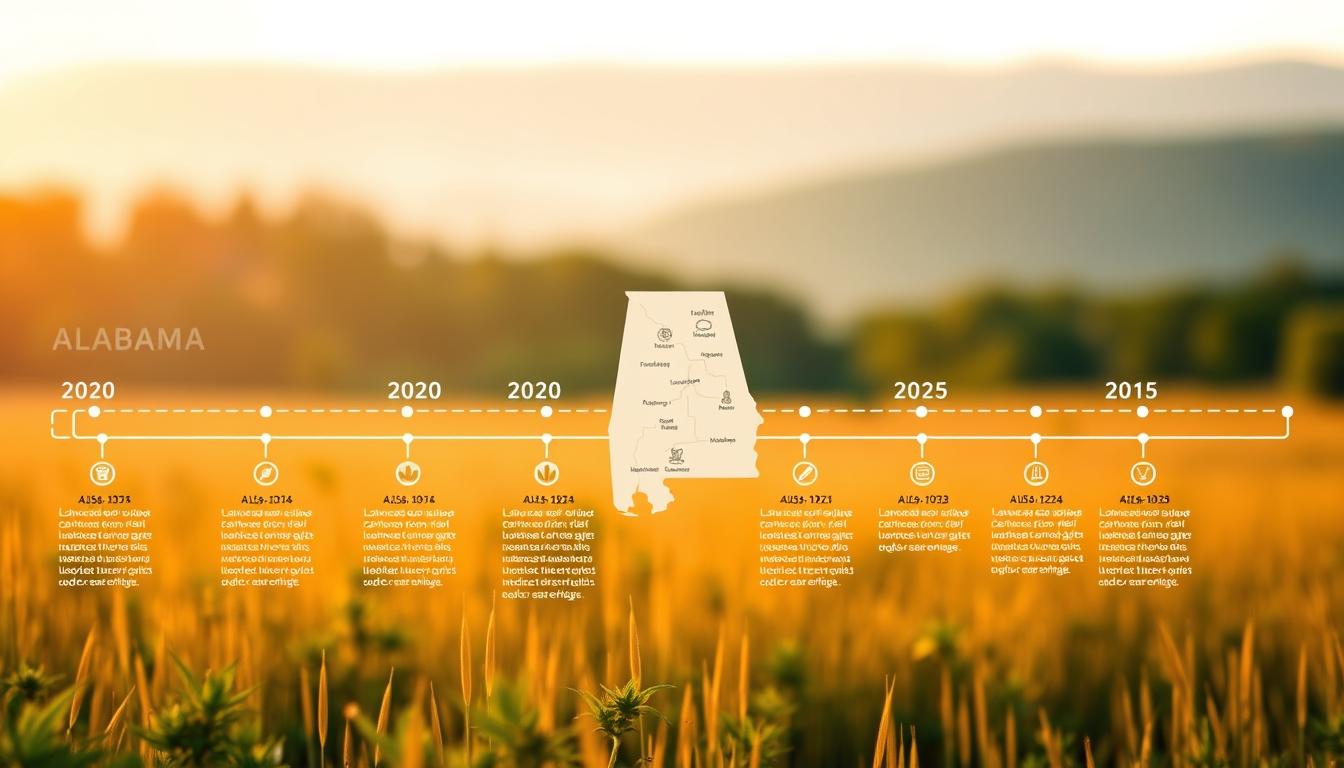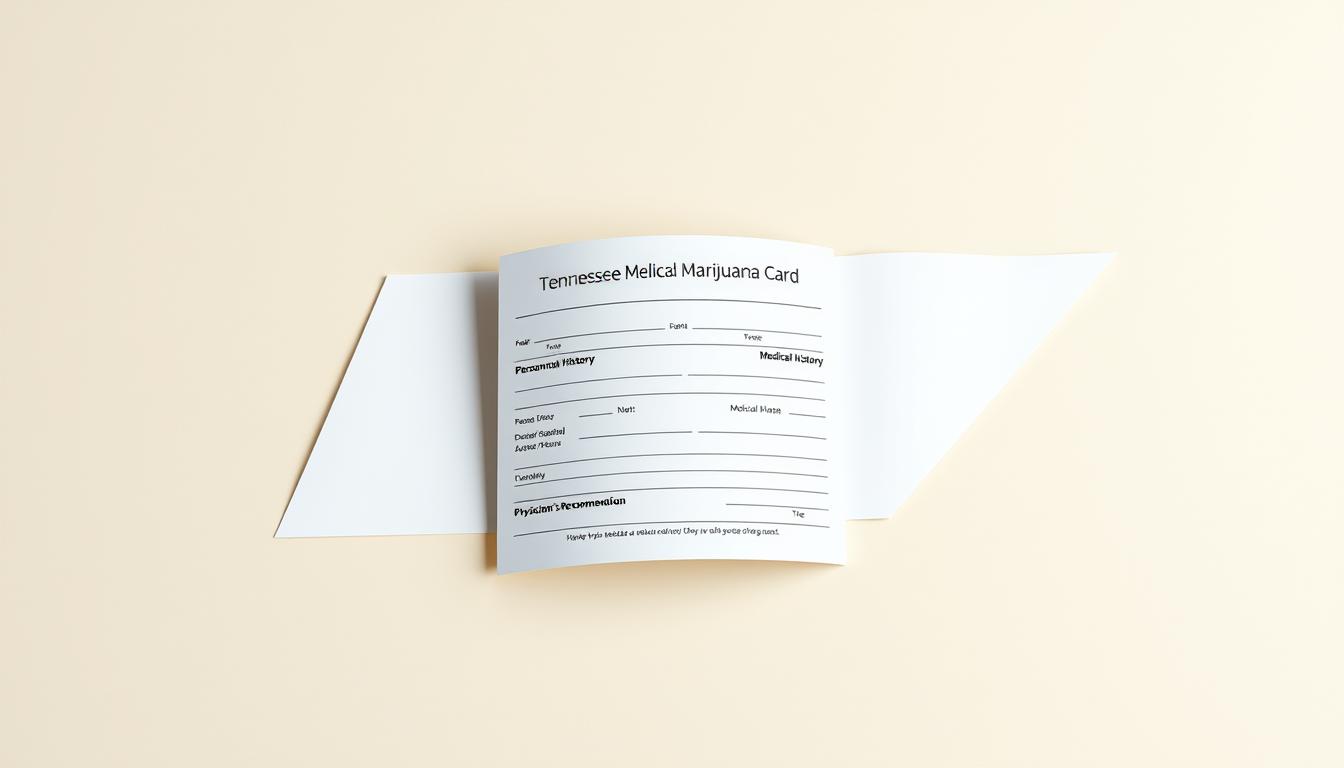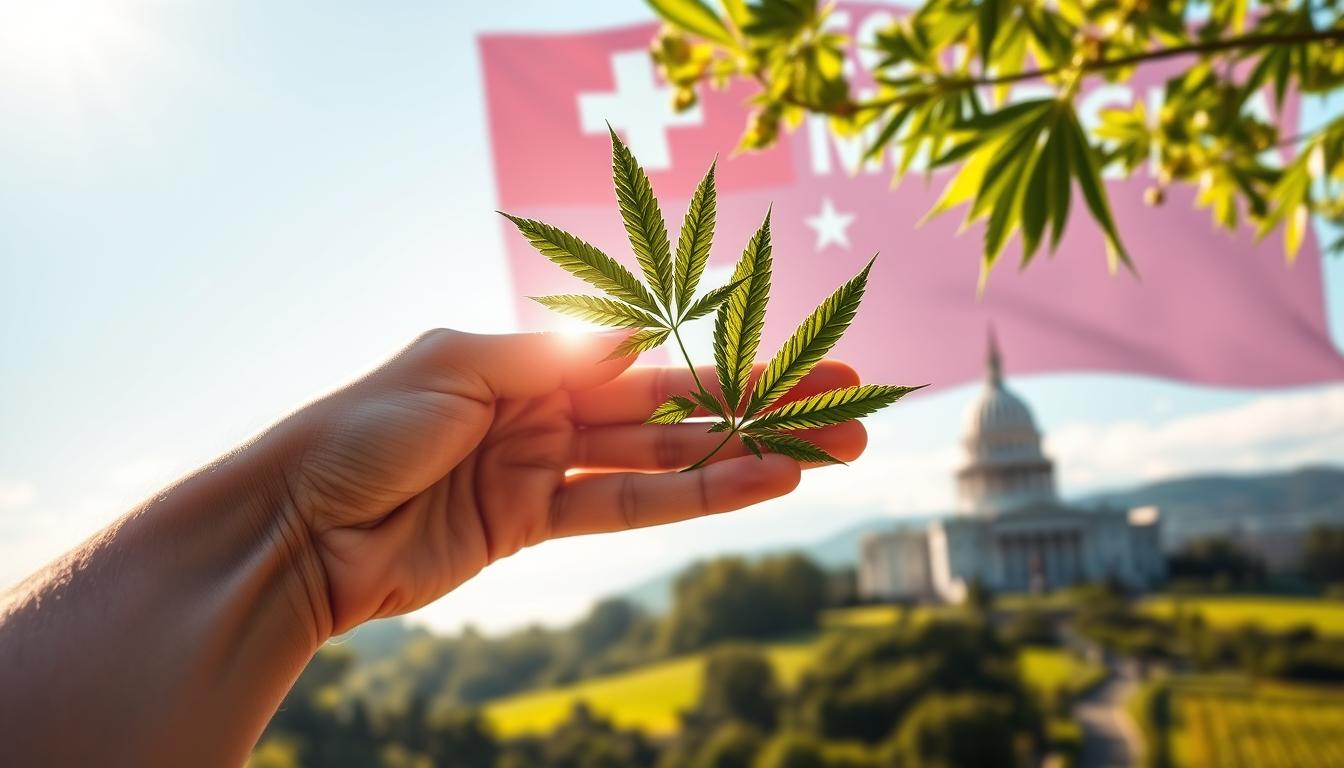The introduction of medical cannabis dispensaries in Alabama has sparked a lot of interest. But, when they will open is not yet clear.
The Alabama Medical Cannabis Commission (AMCC) is working hard to make medical cannabis available. Yet, the exact date for dispensaries is unknown.
People in Alabama who need medical cannabis are waiting anxiously. The delay in opening dispensaries is causing a lot of worry. It affects those who depend on this treatment.
Overview of Medical Cannabis in Alabama
Alabama made a big step in 2021 with the approval of SB46. This law gave patients new ways to treat their health. It opened doors for those with specific medical conditions.
Brief History of Cannabis Legislation
Alabama’s path to legalizing medical cannabis was long. The state once banned it, but now sees its benefits. SB46’s passage was a result of hard work by lawmakers and advocates.
Key milestones in Alabama’s cannabis legislation include:
- The introduction of medical cannabis bills in the state legislature
- Growing public support for medical marijuana
- The eventual passage of SB46 in 2021
Current Medical Cannabis Laws
Today, Alabama’s laws let patients with certain conditions use medical marijuana. They need a doctor’s approval to do so. The Alabama Medical Cannabis Commission oversees the program.
Some key parts of the laws are:
- Qualifying medical conditions, like chronic pain and some neurological disorders
- Rules for patient registration and doctor certification
- Guidelines for growing, processing, and selling medical cannabis
Importance of Dispensaries for Patients
Dispensaries are vital for patients to get medical cannabis safely. They offer various products and teach patients how to use them. This helps patients get the care they need.
Dispensaries are important for several reasons:
- They provide a safe place for patients to get medical cannabis
- They have products for different patient needs
- They teach patients how to use medical cannabis correctly
Timeline for Dispensary Openings
Alabama’s cannabis laws are moving forward. The Alabama Medical Cannabis Commission (AMCC) is leading the way. They are building the state’s medical cannabis industry.
Key Legislative Dates
Important steps have been taken. On August 10, 2023, the AMCC gave out final cannabis licenses to 24 businesses. This was a big moment for Alabama’s medical cannabis program.
Implementation Phases
The medical cannabis program in Alabama is being set up in stages.
- Licensing: First, businesses got licenses to grow, process, and sell medical cannabis.
- Regulatory Compliance: Next, they had to follow state rules. This includes security, testing, and packaging.
- Dispensary Openings: Last, dispensaries will open. Patients will then be able to buy medical cannabis.
Expected Locations
Dispensaries will open in many places in Alabama. The AMCC wants patients to have easy access everywhere.
The timeline for opening dispensaries is key in Alabama’s cannabis law. As the program gets ready, patients and businesses are getting ready too.
Licensing Process for Dispensaries
Over 600 applications for medical cannabis business licenses have been received by the AMCC. This makes the licensing process very competitive. The Alabama cannabis industry growth is expected to be significant, and the licensing process is key to its success.
Requirements for Applicants
To get a dispensary license, applicants must meet certain requirements. These include:
- Background checks for all owners and employees
- Proof of financial stability and enough money
- A detailed business plan showing how they will operate, keep things secure, and follow the rules
- Experience in the cannabis industry or a similar field
Applicants need to submit a complete application package. This includes all necessary documents and fees.
Evaluation Criteria
The AMCC has a strict evaluation process. They look at several important criteria, including:
- How well the applicant can keep things secure and follow state rules
- The quality of the business plan and how they plan to operate
- How financially stable the applicant is and if they can fund their business
- The applicant’s experience and knowledge in the cannabis industry or similar fields
This careful evaluation makes sure only the best applicants get licenses. This helps the Alabama marijuana market analysis and the success of the medical cannabis program.
Timeline for License Issuance
The timeline for getting a license is very important. The AMCC has a multi-phase process for issuing licenses. Licenses are given out in batches. The exact time it takes can change based on how many applications there are and how complex the evaluation is.
Applicants will get updates on their application status through the AMCC’s official channels.
Role of the Alabama Medical Cannabis Commission
The Alabama Medical Cannabis Commission plays a key role. It makes sure medical cannabis is safe and reaches the right patients. The Commission oversees the state’s medical cannabis program.
Responsibilities of the Commission
The Commission sets rules for easy access to medical marijuana. It licenses dispensaries and checks if they follow state laws.
Licensing dispensaries is very important. The Commission checks if applicants can keep the product safe and follow security rules.
Updates on Dispensary Licensing
The Commission shares updates on dispensary licensing often. This keeps everyone informed about when dispensaries will open. It helps patients know when they can get medical cannabis.
The Commission checks if applicants follow state rules. This includes how they package, label, and secure the cannabis. This careful check keeps the program strong.
Collaboration with Local Governments
Working with local governments is key for the program’s success. The Alabama Medical Cannabis Commission teams up with local authorities. This ensures dispensaries follow local laws and rules.
This teamwork helps solve problems early. It makes sure the medical cannabis program fits well in local communities.
Patient Eligibility for Medical Cannabis
Alabama’s medical cannabis program has rules for who can use cannabis products. Patients must have a condition listed by the state to qualify.
Conditions Approved for Treatment
The Alabama Code Section 20-2A-3 (21) lists approved conditions. These include severe and chronic conditions like cancer, epilepsy, and chronic pain. For more details, visit the Alabama Medical Cannabis Commission’s official website.
Application Process for Patients
The application process has several steps. First, patients need a doctor’s approval. Then, they register with the state by submitting documents like proof of residency and medical records.
Importance of Medical Consultations
Medical consultations are key in getting medical cannabis. A doctor can check if cannabis is right for you. It’s also a chance to talk about any concerns or questions.
As Alabama updates its Alabama dispensaries timeline, patients should stay updated on dispensary openings in Alabama. Knowing the rules and process is important for using medical cannabis when it’s available.
Operational Regulations for Dispensaries
Alabama has rules for dispensaries to follow. These rules help keep the medical cannabis program safe and effective. They make sure patients get good products.
Compliance with State Laws
Dispensaries in Alabama must follow the state’s cannabis laws. They need to be run by certified dispensers with the right education. This ensures they can handle medical cannabis safely.
Packaging and Labeling Requirements
Dispensaries have to follow strict packaging and labeling rules. Products must be in child-resistant, tamper-evident packaging. Labels need to show the product’s strength, ingredients, and how to use it. This keeps patients safe and informed.
Security Measures for Dispensaries
Dispensaries in Alabama must have strong security. They need 24/7 surveillance, alarm systems, and secure storage. They also do background checks on employees to make sure they are trustworthy.
By following these rules, dispensaries in Alabama can offer a safe place for patients to get medical cannabis. They help keep the state’s cannabis program strong.
Types of Cannabis Products at Dispensaries
It’s important to know what cannabis products are available at Alabama dispensaries. This is key for patients looking for medical marijuana. As the state’s program grows, understanding the different forms of medical cannabis is vital.
Available Forms of Medical Cannabis
Alabama’s program offers a variety of products for different needs. These include:
- Tablets and Capsules: Oral forms for precise dosing.
- Tinctures: Liquid extracts for sublingual use or mixing with food and drinks.
- Gels and Oils: For topical use or in edibles.
- Creams: Topical for localized relief.
- Suppositories: For rectal or vaginal use.
- Transdermal Patches: Deliver cannabis through the skin over time.
- Nebulizers: Devices for inhaling cannabis.
For more details on edibles, visit https://alabamamarijuanadoctors.com/cannabis-edibles-in-alabama-what-you-need-to-know/. There, you can learn about regulations and options.
Product Quality Standards
The Alabama Medical Cannabis Commission sets high quality standards. These standards include:
- Potency Testing: Products must have the labeled amount of cannabinoids.
- Purity Testing: Screening for contaminants like pesticides and molds.
- Labeling Requirements: Clear labels for ingredients, potency, and dosage.
Educating Patients on Products
Alabama dispensaries must teach patients how to use cannabis products safely. They provide info on:
- Dosage Guidelines: How much to use.
- Administration Methods: How to use the products.
- Potential Side Effects: Possible adverse reactions.
By having various products and educating patients, Alabama dispensaries aim to provide effective treatments. They ensure patient safety and follow state regulations.
Pricing and Insurance Considerations
As Alabama’s medical cannabis industry grows, patients are seeking clarity on pricing and insurance coverage. The financial aspects of accessing medical cannabis are key for patients considering this treatment option.
Average Costs of Cannabis Products
The cost of medical cannabis products in Alabama varies a lot. It depends on the type of product, its potency, and the dispensary. On average, patients pay between $50 to $100 for an ounce of cannabis flower. Concentrates and edibles may cost more.
It’s important for patients to research and compare prices at different dispensaries. This way, they can find the best value.
Insurance Coverage for Medical Cannabis
Currently, health insurers in Alabama do not cover the cost of medical cannabis. This means patients usually have to pay the full cost of their products. But, some healthcare providers may offer guidance on managing costs or recommend financial assistance programs.
Financial Aid Options for Patients
Even without insurance coverage, there are financial aid options for patients. Some dispensaries offer discounts or loyalty programs to help reduce costs. Patients may also be eligible for financial assistance through state programs or non-profit organizations.
Patients should ask about these options at their local dispensaries. They should also stay updated on any changes in legislation that might affect insurance coverage for medical cannabis in the future.
Dispensary Locations and Accessibility
Alabama’s dispensary locations are key to making medical cannabis accessible to patients. The spread of dispensaries across the state is vital. It directly affects patients’ ability to get their treatments.
Urban vs. Rural Dispensary Distribution
Dispensaries in Alabama will likely be more common in cities than in rural areas. Places like Birmingham and Montgomery might have many dispensaries. But, rural areas might have few or none nearby.
This difference could make it hard for rural patients to get their medicine. They might have to travel far to find a dispensary.
- Urban areas: Higher concentration of dispensaries
- Rural areas: Limited access to dispensaries
- Potential impact: Longer travel distances for rural patients
Accessibility for Disabled Patients
It’s important for dispensaries to be accessible to disabled patients. They must follow the Americans with Disabilities Act (ADA). This ensures patients with disabilities can visit.
Key accessibility features may include:
- Ramp access for wheelchairs
- Wide doorways and aisles
- Accessible restrooms
- Clear signage and communication
Transportation Options for Patients
Getting to a dispensary can be tough for patients without cars. But, there are ways to get there. Options include public transport, ride-sharing, and maybe even dispensary-provided transport.
Patients should look into these options. This way, they can get their medicine without too much trouble.
Community Impact of Dispensaries
Alabama’s cannabis industry is growing, and it’s changing local economies and how people see it. Dispensaries are creating jobs and boosting local businesses. This growth is key to the Alabama cannabis industry.
Economic Benefits for Local Communities
Dispensaries bring big economic wins to local areas. They increase taxes, create new businesses, and help build infrastructure. As dispensaries open, local shops see more customers, which means more sales and a stronger economy.
Dispensaries also draw in other cannabis-related businesses. This includes services like cannabis consulting and tourism. It all adds up to more economic benefits.
Job Creation in the Cannabis Sector
Dispensaries create a lot of jobs in the cannabis field. They need people for roles like budtenders, security, and managers. This helps lower unemployment and offers new career paths.
The cannabis industry’s growth also leads to more jobs in areas like law, marketing, and consulting. This means even more job opportunities.
Stigma and Public Perception
Even though more people are okay with cannabis, there’s a stigma. Dispensaries in Alabama might change or keep this stigma, depending on how they’re welcomed. Education and outreach are key to changing how people see cannabis.
As people learn more about medical cannabis and its rules, like those in the Marijuana laws in Alabama, views will likely change. This could lead to more acceptance and understanding.
Future of Cannabis Legislation in Alabama
Alabama is on a journey to legalize cannabis, with debates and efforts ongoing. The state is looking at both medical and recreational use. Several factors are influencing this decision.
Potential for Recreational Use
Alabama is not just talking about medical cannabis. There’s a push for recreational cannabis too. This could change the state’s cannabis scene a lot. But, there are hurdles like laws and public opinion to get past.
There’s a move to decriminalize small marijuana offenses in Alabama. This could be a step towards legalizing more types of cannabis use.
Ongoing Advocacy Efforts
Advocacy groups are key in shaping cannabis laws in Alabama. They work hard to show the good of cannabis and push for law changes. They educate people, talk to lawmakers, and team up with others to help their cause.
These groups don’t just focus on making cannabis legal. They also want the industry to be well-regulated. They push for fair licensing and safe products.
Lessons from Other States
Alabama can learn from states like Colorado and California. These states have shown the good and bad of legalizing cannabis. They’ve also shown the need for good rules and teaching the public.
By learning from others, Alabama can avoid mistakes and make the most of legalizing cannabis. This includes understanding the effects on local areas, the role of dispensaries, and the economic impact.
Conclusion: What to Expect Next
The sale of medical cannabis in Alabama is set to start soon. The Alabama Medical Cannabis Commission (AMCC) is working hard to launch the state’s medical cannabis program. The latest news is that the Montgomery County Circuit Court has ruled against the AMCC’s emergency rule from December 2023. This affects the licenses for integrated facilities.
For the latest updates on the AMCC’s actions and how it impacts dispensary openings, check out Lexology.
Key Developments
The AMCC might start investigative hearings for other license categories. They could also hold a new vote on integrated facility applications. This is important for understanding when Alabama dispensaries will open.
Future Outlook
Patients and others are waiting for dispensaries to open. As the AMCC deals with legal issues, we’ll know more about when dispensaries will open. The timeline depends on the AMCC’s efforts and solving legal challenges.
Responsible Use
As Alabama moves forward with its medical cannabis program, it’s key to use cannabis responsibly. Patients should talk to doctors to learn about the benefits and risks of medical cannabis.


